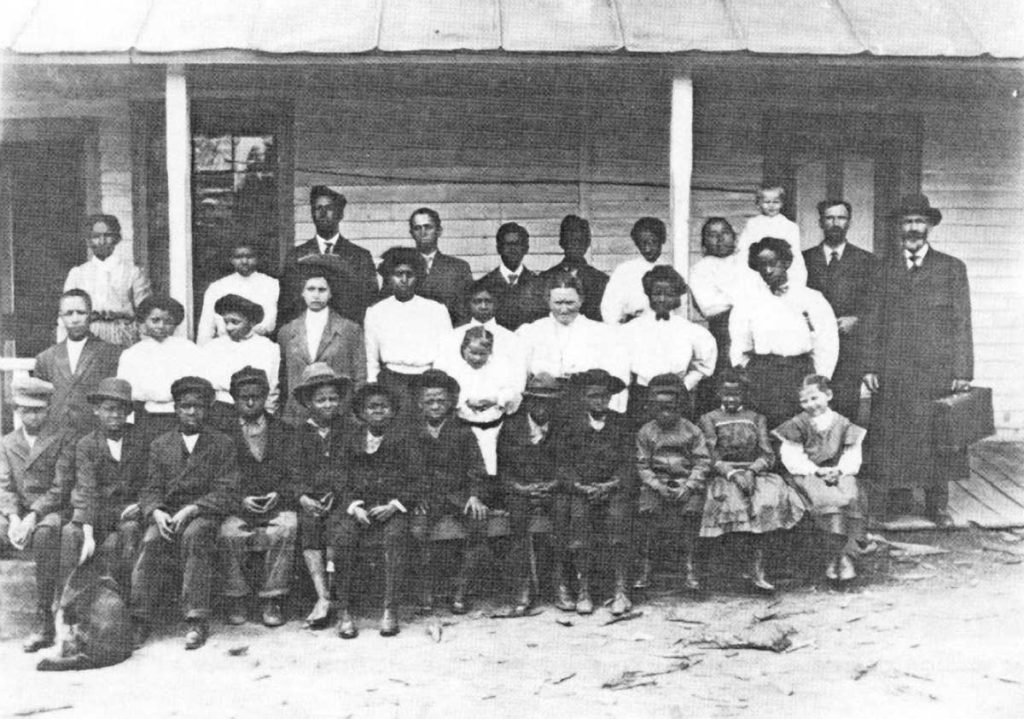
The Elk Park Orphanage and School
History of The Boone Mennonite Brethren Church
Krimmer Mennonite missionaries immigrated to North America in the late nineteenth century from Crimea, Russia, in response to persecution for their Anabaptist Protestant beliefs. They came to western North Carolina in 1900 in response to a call by Emily Prudden for Christian teachers. They built a total of 13 churches and an orphanage serving African Americans in the mountains and foothills. In some cases, the churches also served as schools for black children who by law, could not to attend white schools.
Rev. Joseph Tschetter and his wife Katharina answered the call. The two were ordained missionaries of the Krimmer Mennonites, with religious roots in southern Russia and Germany. The two missionaries made their way to North Carolina in 1903, leaving behind the plains of the midwest for the mountains of southern Appalachia. It would be here where the Tschetters would join their fellow Mennonites in assisting with the Salem Mennonite Mission Church and Orphanage in Elk Park, Avery County serving the African American population of the region.
By 1911, Rev. Tschetter began holding Mennonite services in neighboring Watauga County within what became the Junaluska community of Boone. In 1917, he organized a Mennonite congregation with eight original members, and built the Boone Mennonite Church in 1918. The original building still stands today.
Rockford Hatton
In 1927, Reverend Rockford Hatton, known as “Uncle Rock”, was ordained as a minister of the North Carolina District Mennonites. He pastored the Boone Mennonite Brethren Church between 1930 and 1970. Once said Pastor Hatton preached with such conviction that he once moved a man so deeply that the man slid to the front of the church like “he was stealing home base,” to be saved. In addition to his role as the Boone Church’s minister, he was a champion for the Mennonite Brethren faith and instrumental in establishing Mennonite Brethren Churches throughout the mountains and foothills of North Carolina.
The church prospered under Pastor Hatton’s leadership in 1933. Seven deacons were appointed at the Boone church. Rufus Bowers, Harm Davis, Kenneth Mathis, Osha Mitchell, Joe Odom, Hunter Shearer, and Ronda Horton.
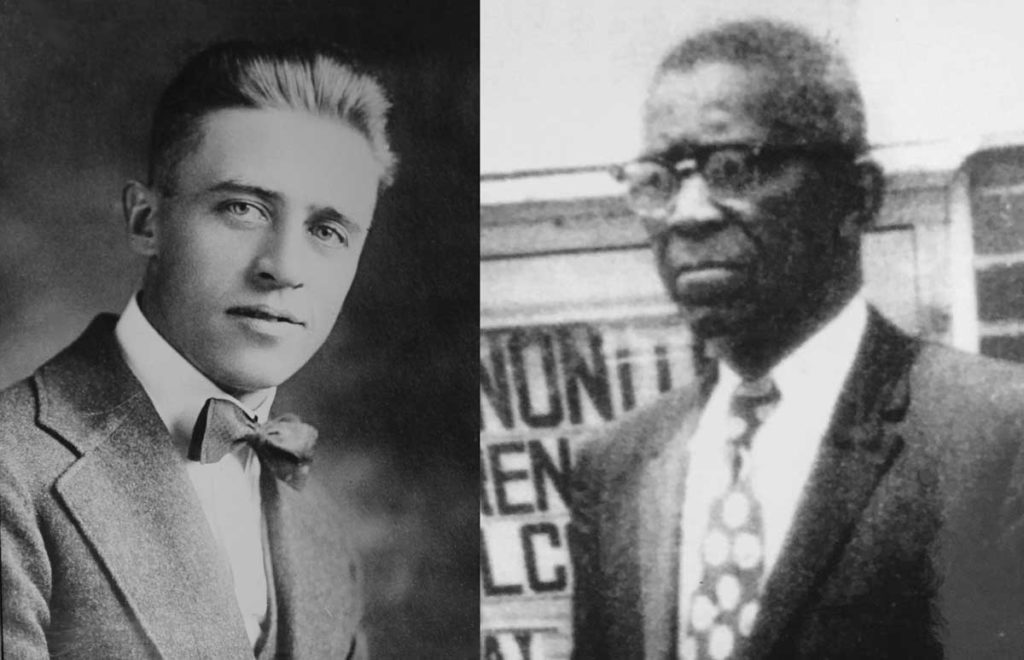
P.H. Siemens; Ronda Horton
Ronda Horton
Ronda Horton was a talented singer and orator who was educated at KMB School and Orphanage at Elk Park, NC. In late 1933, Reverend Ronda Horton was ordained a Mennonite Brethren minister. Ronda presided over the first North Carolina Church Conference held in 1939. In 1955, he was elected moderator of the six Mennonite Brethren churches that make up the North Carolina District Conference. Ronda Horton took over the full administration of the North Carolina district in the mid-1950s.
As moderator or “district superintendent,” Horton made decisions regarding the pastorate of each congregation, following the system established by orphanage and North Carolina district founder, P. H. Siemens. He reassigned the pastors annually, rotating them through the churches. In this way, all the pastors ministered each church in the North Carolina district. Pastor Horton and the other ministers often pastored several churches at a time, but the Boone Church remained Pastor Horton’s first love.
Horton continued to preach and maintain his position as district moderator. Ronda Horton’s years of leadership endeared him not only to African-Americans in Boone but also to all people throughout the North Carolina mountains. The African-American Mennonite leaders still refer to Horton as the “Moses of our North Carolina Church”. In 1986, Horton passed away at the age of 91, leaving behind a legacy that continues to this day.
The Church saw a rise in membership and popularity during the Great Depression of the 1930s and World War II. During the War, missionary work became vital to the community. One of the functions of the congregation was to provide gifts to the wives of soldiers. Other African American religious communities in Boone, such as the Methodist, had men drafted into World War II. However, members of the Mennonite community avoided the draft due to their belief in pacifism. Even after the war, the Mennonite Brethren Church still played a major role for the community.
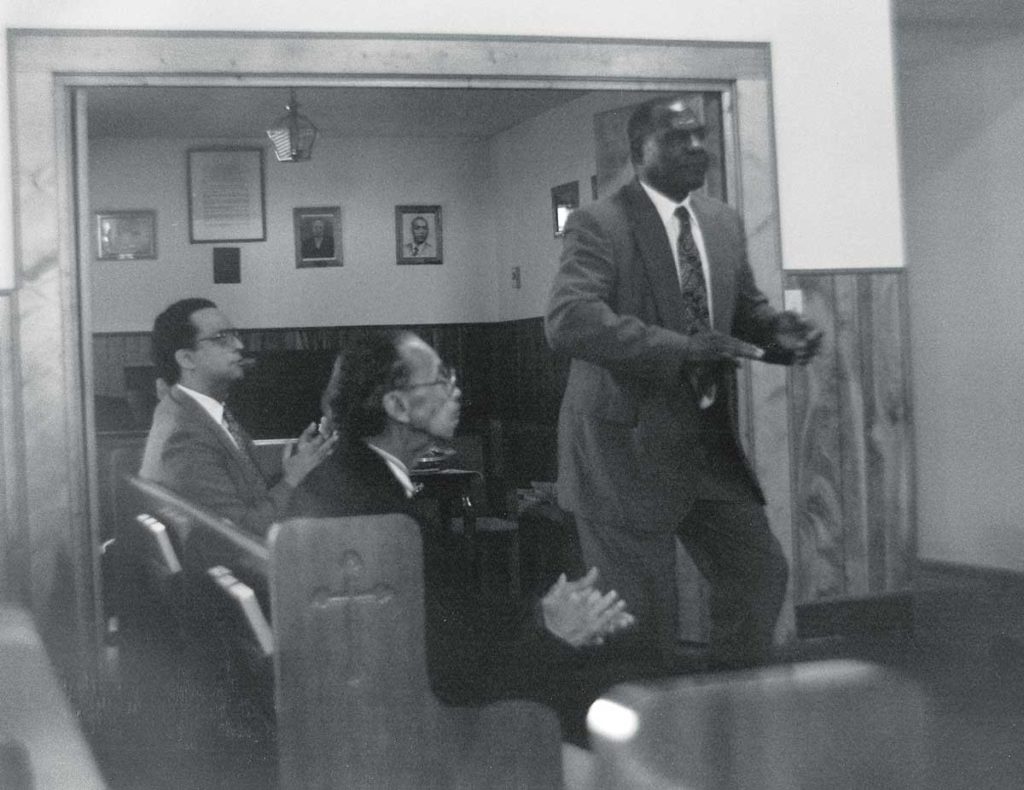
Gene Ray, Neal Grimes. and Eugene Coles
Mark Whittington
In 1944, Reverend Mark Whittington was ordained. Mark was the son of William and Callie Whittington of Boone, North Carolina. Lillian Whittington, Mark’s wife, organized a family quartet that traveled to neighboring churches and performing on radio programs throughout the state. During this time, two more deacons joined the church, Mark’s brother, Harve Whittington and John Grimes.
In 1946, Mark Whittington became pastor of the church. During his efficient and successful leadership, the church voted to expand the building. The Boone Church borrowed $500.00 and remodeled the church for the very first time. The members constructed additional classrooms to the side of the church for the growing Sunday School.
Listed in an archival document, a 1948 Treasurer’s report of the North Carolina and Tennessee churches reported that the Boone church treasury boasted of $476.54.
Earl Yount
1956 saw the ordination of Earl Yount. Yount was a U.S. Army veteran from the Korean War, where he was awarded a purple heart. He attended Grace Bible Institute in Omaha, Nebraska. Earl Yount and his wife, Kathy, served as pastor of the church for many years after the death of Rockford Hatton.
Building upgrades continued under Pastor Yount as the church continued to prosper and grow. During this time, the church choir began to flourish as well, with the church purchasing a baby grand piano for worship service.
Leroy Kirkpatrick
Reverend Leroy Kirkpatrick pastored the Boone church for a short period but served as assistant pastor for many years. Reverend Kirkpatrick was a widower with a dynamic, moving testimony. He was born in Charlotte in 1910 and moved to Boone with his wife, Elizabeth Hagler who was from the Boone, in 1932. Kirkpatrick was a sharecropper who also raised hogs and chickens. He also was known to hunt and fish in the area. He was the assistant pastor at the Mennonite Church until he died on Easter Sunday in 1993.
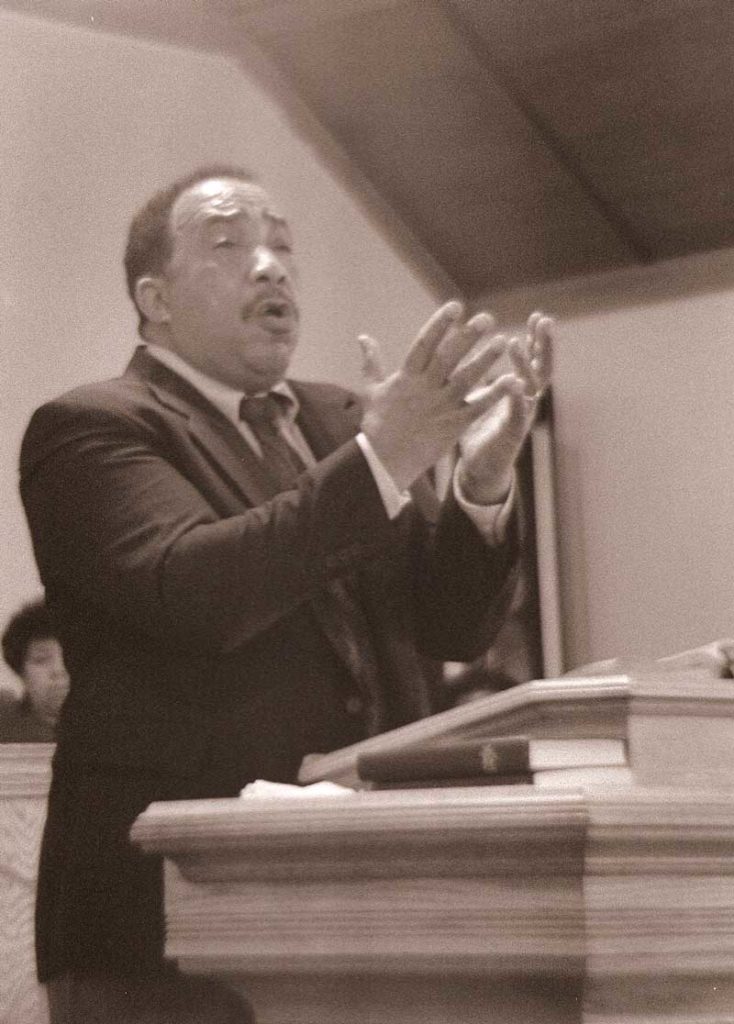
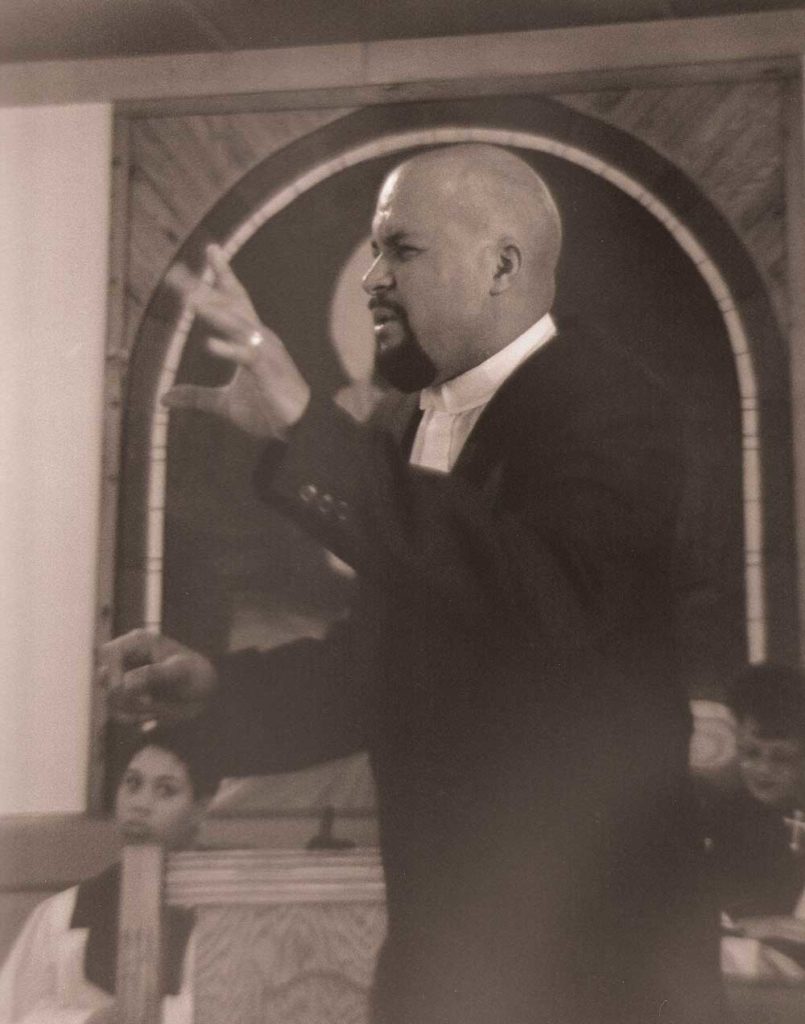
James Isbell; Fred Howell
James Isbell
Reverend James Isbell and wife, Lucille served as pastor from the late 1970’s until his retirement in the late 80’s. The church completed a second full renovation and had a friendly fund-raising competition which enable the church to hold a mortgage burning in the early 1980’s. Reverend Isbell served as pastor at a time of not just growth in the church but in the town of Boone as well. The church boasted record attendance from the community and from Appalachian State University. The church became a home away from home for many Appalachian State faculty, staff and students.
The choir grew in membership and popularity with the help of musicians from Appalachian State. Choir directors, Joann Bell and Willie Fleming were the first of many in church history to join local choir members for worship service. Together they brought a different style of music from the traditional hymns to more contemporary Black Gospel music.
When interviewed in the early 1990’s, the Rev. James Isbell, once said, “Any person in Boone, in this community, identifies in some way, connects, to this church. They’re all family and every black person in this community at least has a relative or friend who attends or is a member of the Boone Mennonite Brethren Church.”
Fred Howell
Reverend Fred Howell as assistant pastor, under the supervision of Pastor Isbell, stepped into the role following his retirement. Pastor Howell served the Boone church with the help of his wife Patty and young family. His years saw the growth of the church choir under the direction of a dynamic musician and App State School of music student named Tony McNeill. The choir performed at local churches and venues and traveled extensively across the state. The choir also performed on television and radio programs bringing much attention to the ministry of the Boone Mennonite Brethren Church.
Reggie Hunt
Reverend Reggie Hunt served as assistant pastor under Reverend Fred Howell. He began to serve as the pastor of the church when Pastor Howell decided to return to the role of evangelistic preaching. Pastor Hunt was young, recent graduate from Appalachian State University, and his ministry brought a following of young people and new energy into the church. Working closely with Deacons Virgil Greer and Eugene Coles, Pastor Hunt became the first full time pastor in Boone MB Church history.
Morris Hatton
Reverend Morris Hatton, son of Pastor Rockford Hatton, has served as pastor at the Boone church on several occasions. Pastor Morris Hatton was ordained in 1975 and became an assistant pastor and minister of music for the church. Hatton first became Pastor in late 1978 before he left to return to seminary school in 1980. Pastor Hatton and his beloved wife, Alma moved west to Fresno, California for a year before returning to Boone. He pastored other district churches for five years before returning to school in California for three more years. It was then that Hatton, a gifted lifelong musician, recorded his first album, “Something Beautiful”.
His ministry led him to pastor a Mennonite Church in Florida for six years before returning to Boone to continue his musical pursuits. Hatton served as assistant pastor to Reggie Hunt before taking the reigns as Pastor. He became the full time pastor in the church after Pastor Eric Lipford became ill in 2006. Pastor Hatton left the Mennonite church in 2011 to start his own church, High Country Bible Fellowship under his ministry, Morris Hatton Ministries. He has continued to preach and pastor several churches in the region, lead Bible studies, record more music and make special appearances.
More church renovations occurred under Pastor Hatton including the redesign of the pastor’s study. In addition a new metal roof was added to the structure. The loan recently paid in full by the church was the money borrowed from the conference for these repairs.
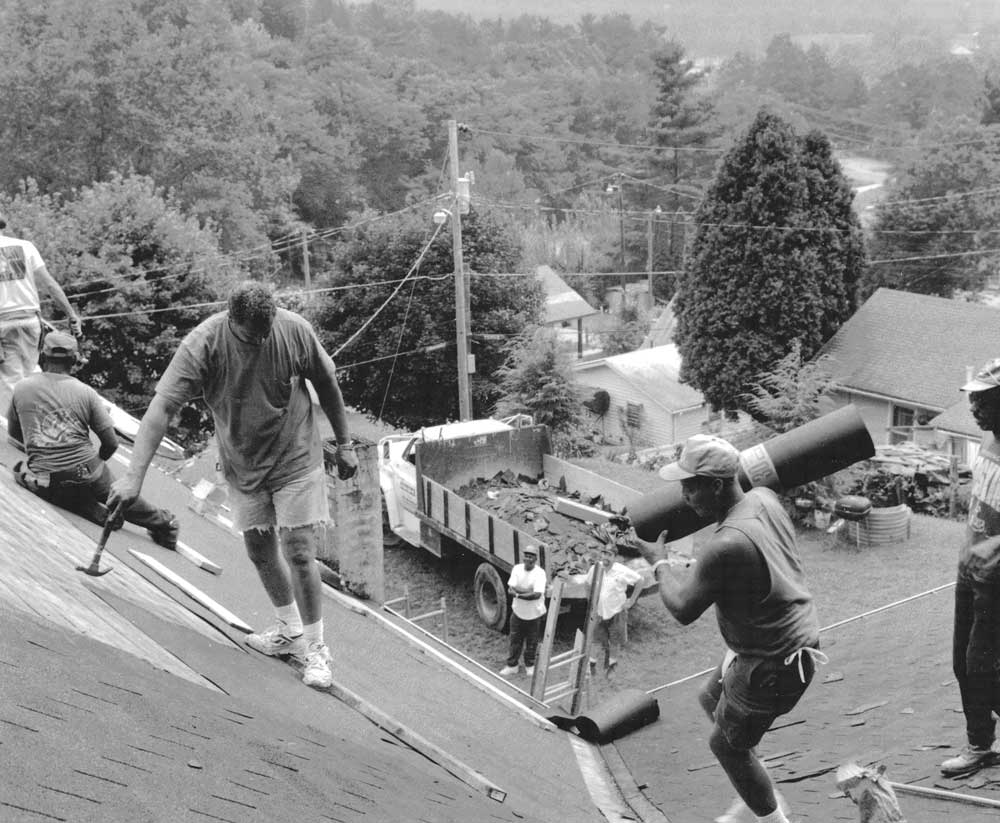
Church roof repairs
Eric Lipford
Reverend Eric Lipford, a Lenoir native, and wife Anthony served at the Boone church from 2003 after Pastor Reggie Hunt began his new ministry at the Cornerstone Summit Church in Boone. The Lipfords served the Boone church until 2006 when Pastor Lipford suffered the first in a series of many strokes.
Pastor Lipford served as a member of the Junaluska Heritage Foundation. The Foundation, originally founded by Deacon Virgil Greer was instrumental in receiving housing grants and funding for the community and its aging population. The Foundation received over $15,000.00 in funding and State assistance. The Junaluska Heritage Foundation also hosted a community event yearly titled, “The Thrill on the Hill” where Pastor Lipford delivered the gospel and fellowshipped with community members and town officials.
His wife Anthony remarked, “Coming up the mountain to the Boone Church was like going to Heaven. The congregation was loving and accepting; even the people in the community who did not attend the church embraced us. The church had a connection with the students from ASU and my husband was able to reach out to local area churches and his prison ministry in both Watauga and Caldwell County. He was able to build a connection with young adult men in Boone and we found the women of the church to be so loving and supportive to any ministry created.”
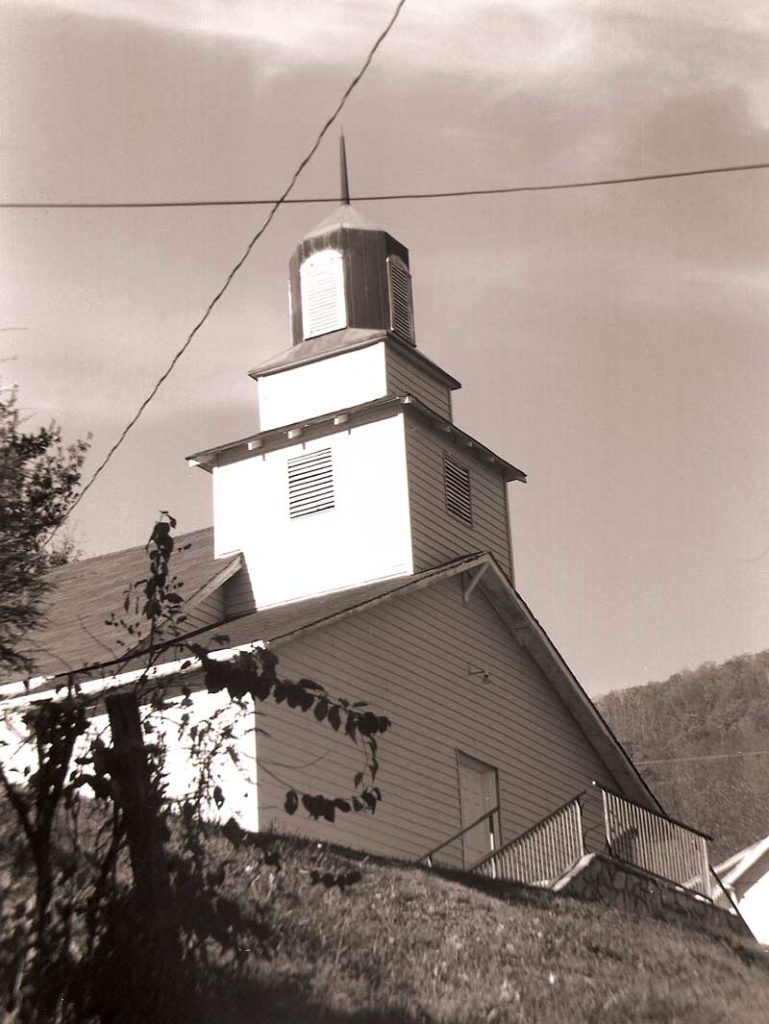
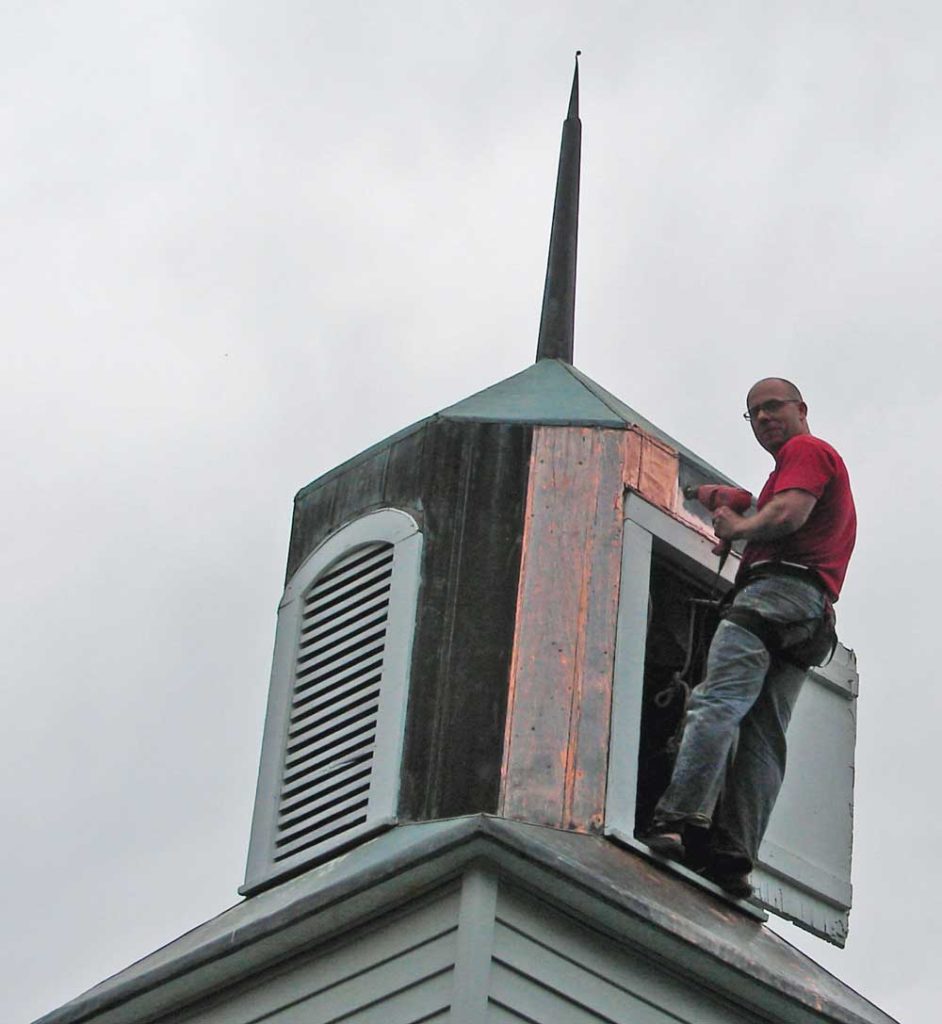
Chris Eidse
Chris Eidse
Reverend Chris Eidse and his wife Rebecca served as Pastor from 2011 to spring 2014. Pastor Eidse who is originally from Winnipeg, Canada, moved to Lenoir, North Carolina in 2004 to work at the six area Mennonite churches. Pastor Chris, as he preferred to be called, was a handyman and completed many of the building renovations himself.
Under Pastor Eidse’ leadership, the former youth pastor with a heart for children, focused on building up the youth. The church also participated in more international outreach with close relationships with our fellow church members in Canada and beyond. Also under Pastor Eidse’ leadership, the choir earned its current name, the Junaluska Gospel Choir and toured extensively around the area. The choir also created a CD of its music to help better spread the gospel to the world.
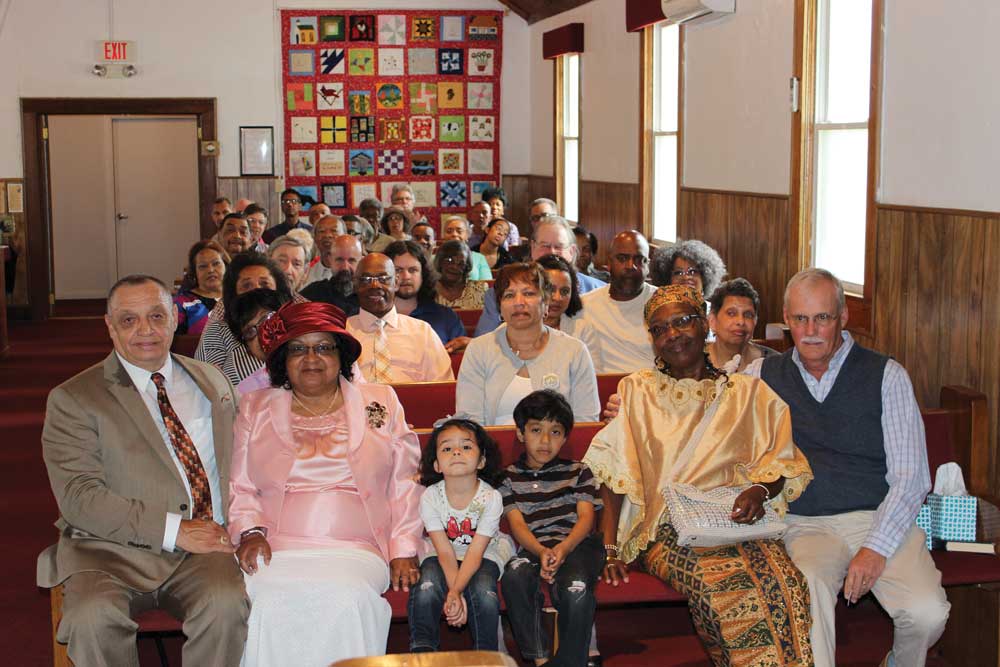
Mike Mathes
In January of 2014, Pastor Mike Mathes and his wife Venus became the current pastoral team. “Pastor Mike” as his congregation refers to their new leader, is a High Country native who was born in Newland to Ray Mathes (deceased) and Jennie Bell Mathes.
He was among the first graduating class of Avery High School in 1969 and attended Western Piedmont Community College in Morganton. He and his wife, Venus, live in Morganton, North Carolina.
Pastor Mathes pastored at Beech Bottom Mennonite Brethren Church, his hometown church, for eight years, and said he has now “been commissioned by the Lord” to lead Boone Mennonite Brethren Church. He served as the assistant moderator of the North Carolina District of the Mennonite Brethren Conference and as a board member of the Mennonite Central Committee of the East Coast in Philadelphia, Pennsylvania.
Pastor Mathes felt the call to do something special for the 100-year celebration of the Boone Mennonite Brethren Church. He called a committee together to plan and execute a week of celebration that would give honor and pay homage to the ones who paved the way and have gone before us.
